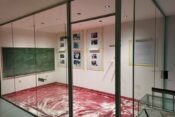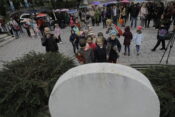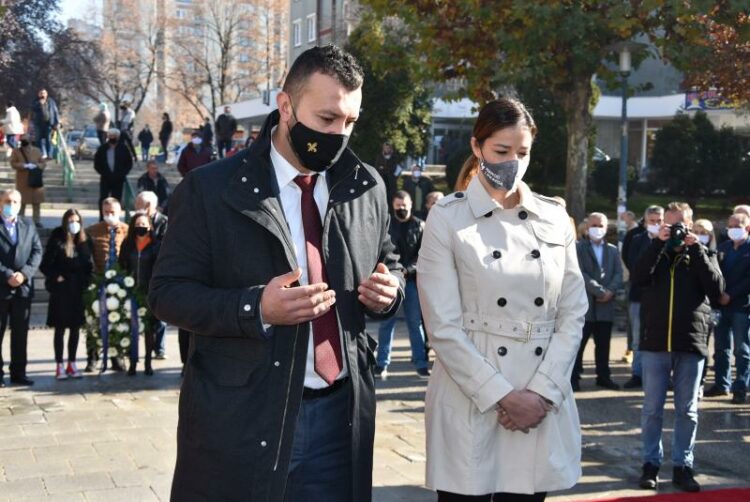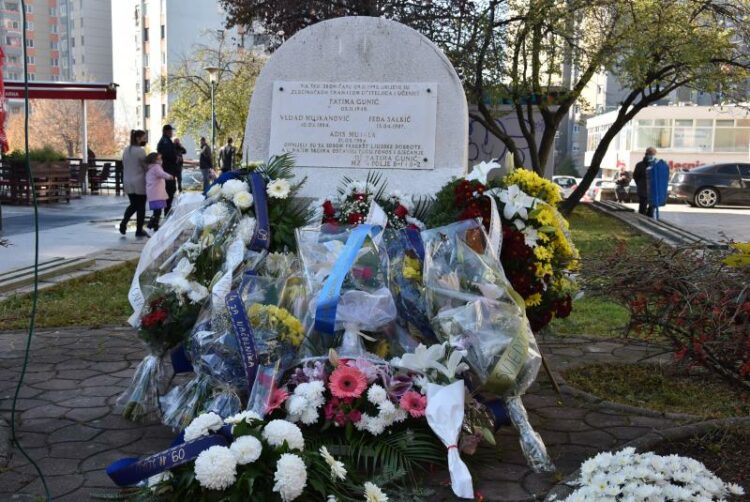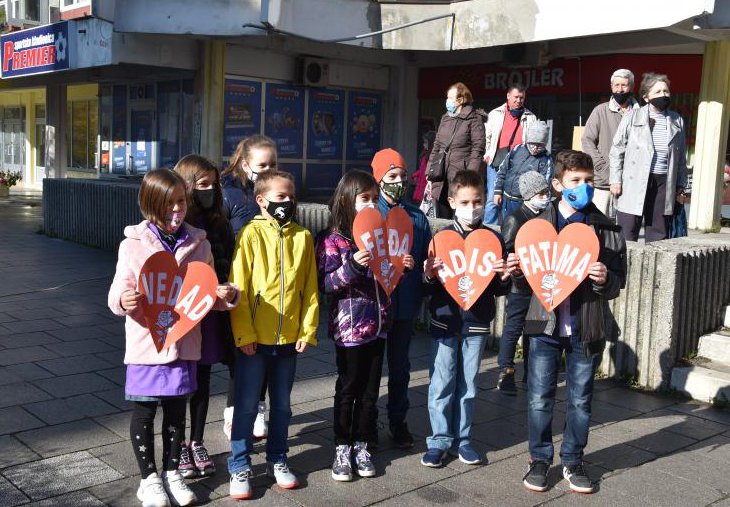
Locals, officials and students of the Fatima Gunic school in Sarajevo laid wreaths in the Alipasino Polje neighbourhood to commemorate the teacher the school was named after and three of her students who were killed by a shell in 1993.
Gunic has become a symbol for teachers in Sarajevo after her untimely death on November 9, 1993.
On that day, she was teaching her class when a shell hit the building and killed her along with three students, Adis Mujalo and Vedad Mujkanovic, both born in 1984, as well as Fedja Salkic, born in 1987.
Another 23 students were injured.
Among those who gathered at the monument in Sarajevo’s Alipasino polje neighbourhood were family members and friends of the late teacher and the three students.
Deputy Sarajevo Canton (KS) Assembly Speaker Danijela Kristic and KS Minister KS Transport Minister Adi Kalem were also present.
“The brutal murders and massacres of citizens in Sarajevo and Bosnia and Herzegovina were not accidental and this should always be pointed out,” Kalem said, arguing that there is no other way to explain it since the shelling often targeted children playing or standing in line for food and water.
“This cannot be explained in any other way than as a planned and systematic killing of children and citizens of Sarajevo,” he stressed.
“The student Adis Mujalo would be 36 years old today, his friend Vedad Mujkanovic would also be 36, and the first-grade student Fedja would now be 34,” he said, adding that “we must not and will not forget the monstrous atrocities that no normal human being could comprehend nor understand.”
With tears in his eyes, the father of Adis said he will never forget the scene when he found the body of his son and that, from that moment, his life makes no sense anymore.
The head of the association of parents of children killed during the siege of Sarajevo between 1992 and 1995, Fikret Grabovica, said that “it is especially difficult when you come to the place where children were killed, and it is very important to preserve the truth from oblivion in this way as well because there are growing tendencies of genocide denial.”
“It is not in our interest for youth to remember this for the sake of hate or revenge, but so they value peace. And that is only possible with memory and knowledge,” Grabovica said.

